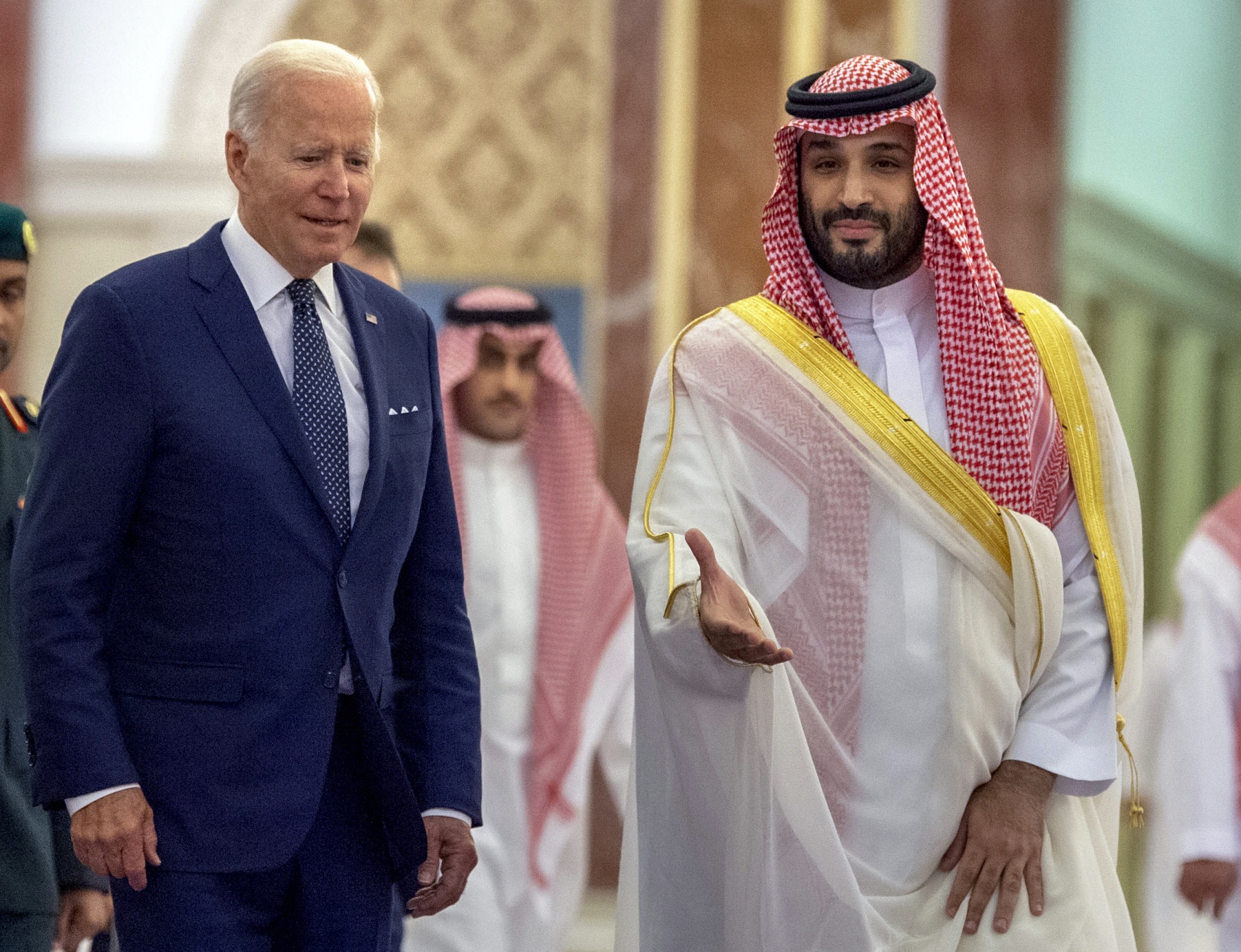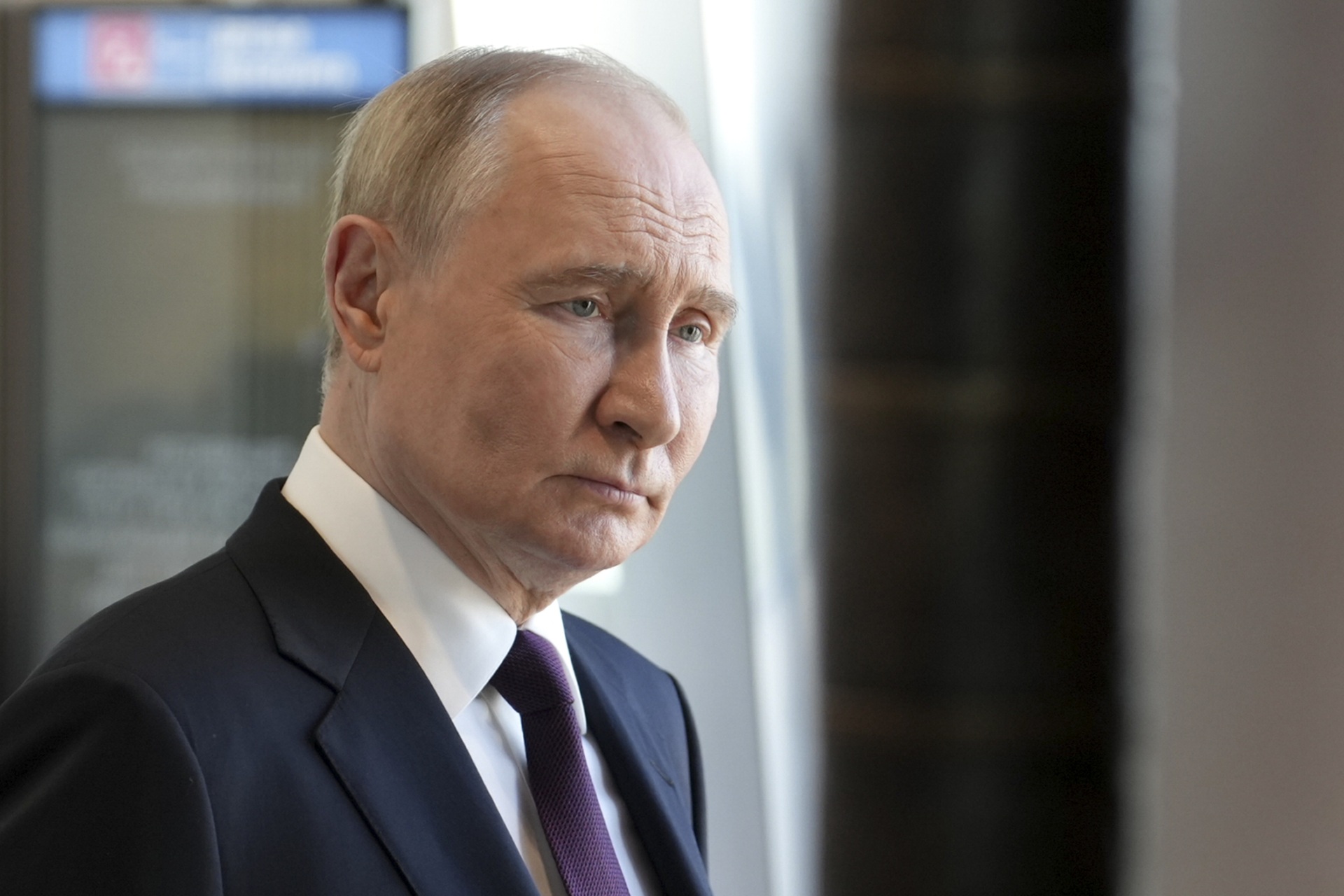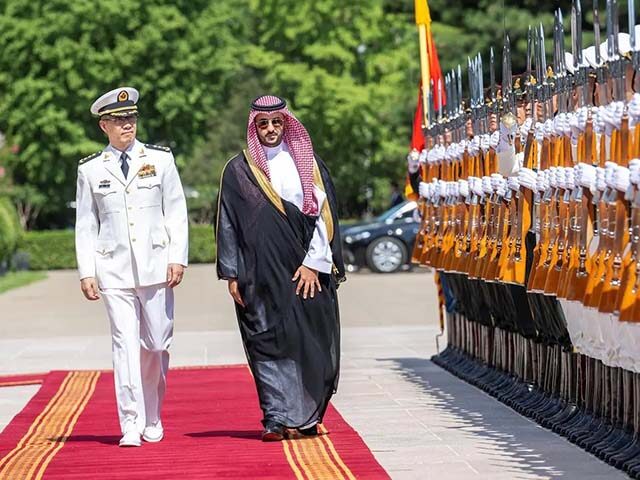Saudi Defense Minister Prince Khalid bin Salman traveled to Beijing on Tuesday to meet with Chinese Defense Minister Dong Jun and Gen. Zhang Youxia, vice-chair of the Central Military Commission (CMC) and China’s highest-ranking uniformed official.
The meeting suggests the Saudis are turning to China for defense cooperation after four years of disastrous relations with the administration of American President Joe Biden.
WATCH — Maher: We Now Have an Iran, China, Russia Axis of Evil and Biden Pushed Saudis Towards China:
The Saudi state press agency said several other high-ranking officials traveled to Beijing with the defense minister to discuss stronger relations with China and increased military “coordination efforts,” as Prince Khalid put it.
The Chinese Defense Ministry published a summary of Khalid’s meeting with Dong that said Saudi Arabia and China are ready to “raise bilateral military ties to a higher level.”
The South China Morning Post (SCMP) noted that Saudi Arabia has taken several concrete steps during the Biden presidency to solidify its military relationship with China, its largest trading partner and biggest oil customer:
China’s state-owned defense industry displayed the latest model FC-31, its fifth-generation fighter jet, and more than 30 unmanned aerial vehicles at the World Defence Show in Riyadh in February, hoping to ramp up exports to the region.
The Chinese and Saudi navies also held a joint counterterrorism exercise in October, against the backdrop of the Israel-Gaza war.
In addition to their growing military ties, China and Saudi Arabia have deepened their cooperation in a range of other fields, including artificial intelligence and infrastructure.
The most dramatic indication of China’s growing influence in the Middle East came in March 2023, when Beijing brokered a diplomatic rapprochement between Saudi Arabia and its chief regional rival, Iran.
The deal was a devastating blow to U.S. foreign policy under President Joe Biden, reversing years of work by his predecessor Donald Trump to bring Arab nations together against Iran’s nuclear ambitions. Iran is now openly contemptuous of international non-proliferation agreements and U.N. inspectors and is enriching uranium to near-weapons-grade at a record-breaking pace.

In this photo released by the Saudi Royal Palace, Saudi Crown Prince Mohammed bin Salman, right, welcomes U.S. President Joe Biden to Al-Salam Palace in Jeddah, Saudi Arabia, July 15, 2022. (Bandar Aljaloud/Saudi Royal Palace via AP)
Khalid’s meeting with Gen. Zhang was ominous because Zhang has been China’s point man for developing closer military ties with Russia. Zhang visited Moscow in November to meet with Russian President Vladimir Putin to discuss cooperation on advanced military technologies, including space weapons. The Pentagon warned in May that Russia has “likely” launched at least one anti-satellite weapon into the same orbit as a U.S. government satellite.
Washington Institute for Near East Policy senior fellow Grant Rumley hopefully suggested Khalid’s primary reason for visiting Beijing was to solicit China’s cooperation in restraining the Iran-backed Houthi rebels of Yemen, a growing menace to Red Sea shipping that the Biden administration has utterly failed to contain.

Russian President Vladimir Putin in St. Petersburg, Russia, on June 5, 2024. (Alexander Zholobov, Sputnik, Kremlin Pool Photo via AP)
“China has leverage with Iran and has largely successfully protected its own interests vis a vis the Houthi attacks; the Saudis are likely hoping China will be able to apply some pressure on the group,” Rumley told Al-Monitor on Tuesday.
If that was truly Khalid’s mission in Beijing, Rumley predicted the outcome would be disappointing, since “China has continually demonstrated that its actions in the region rarely extend beyond its own self-interests.”
China would, however, love to talk Saudi Arabia into sharing defense technology and increasing purchases of Chinese hardware. The former is a worrisome prospect because most of Saudi Arabia’s military tech has been purchased from the United States until now.
Saudi Arabia in February became the first export customer for China’s high-altitude, long-endurance Wing Loong-10B drone, which China showed off at the World Defense Show in Riyadh. The Saudis began buying Chinese drone technology, and seeking Chinese cooperation with their own manufacturing efforts, in 2017.
WATCH — Blinken: There’s Evidence China Is Trying to “Influence and Arguably Interfere” in Our Elections Despite Biden’s Warning:
The Diplomat predicted Saudi Arabia would use its growing relationship with China to achieve short-term goals, such as securing more investments for Crown Prince Mohammed bin Salman’s “Saudi Vision 2030” plan to transform the Saudi economy away from oil dependence, while China sees its partnership with the Saudis as a chance to develop “a more multipolar global order” that would spell the end of “U.S. hegemony” around the world.
The biggest advantage remaining to the United States is that it has extended security guarantees to Saudi Arabia that China could not replace, and the Saudi economy is still intricately linked to the U.S. dollar, although the Saudis have lately been threatening to shred that all-important but unwritten agreement.
“The United States is on the verge of signing a crucial bilateral defense pact with Saudi Arabia, which will significantly bolster its security commitment to the kingdom. It is expected to include formal U.S. assurances to defend the kingdom and grant Saudi Arabia access to advanced U.S. weapons. In exchange, Saudi Arabia would halt its arms purchases from China and limit Beijing’s investments in the country,” The Diplomat noted.
The Carnegie Endowment for International Peace on Monday warned ratification of that U.S.-Saudi defense pact looks “increasingly unlikely” as the political situation in the Middle East remains turbulent due to the Gaza war, and Democrats in the U.S. Senate will likely balk at any agreement that does not include firm support for ending the war and establishing a Palestinian state.
“Many Democrats likely will find it difficult to ratify without a commitment to a serious peace process, while many Republicans also likely will find an absence of normalization with Israel difficult to swallow. Gathering the needed sixty-seven votes will be difficult,” Carnegie predicted.
The Biden administration’s relationship with Saudi Arabia has been difficult ever since Biden promised to make Crown Prince Mohammed bin Salman, de facto chief executive of the Saudi kingdom, into a “pariah” during his 2020 presidential campaign. The first year of the Biden administration included several insulting snubs of the Saudis.
Biden would back away from those boasts over the years as oil prices soared and his poll numbers plummeted, but the Saudis delivered a few snubs of their own. At the very least, Riyadh seems to have grown more determined to keep its options open for closer relationships with America’s geopolitical foes during the Biden years.

COMMENTS
Please let us know if you're having issues with commenting.